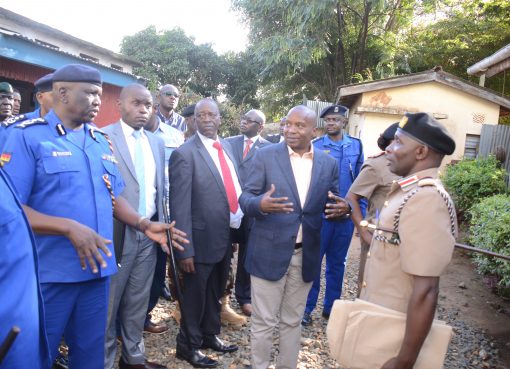The Ethics and Anti-Corruption Commission (EACC) has raised concerns over increased runaway corruption perpetuated in county governments.
EACC Vice Chairperson Dr Monica Muiru says despite counties receiving in excess of Sh1.5 trillion since the inception of devolution 10 years ago, some counties have stagnated instead of progressing in terms of development.
Muriu noted that lack of accountability structures and failure to entrench and adhere to strong systems of governance has perpetuated embezzlement of public resources and unethical practices in devolved units.
“It is sad the money that was transferred to counties to facilitate operations and development, big chunk lost through corruption and worrying making some counties to regress instead of developing,” said Muriu
The Vice chairperson spoke during the launch of an anti-corruption audit of the systems, policies, procedures and practices of the Murang’a county executive and assembly on Wednesday in Murang’a town.
She accused the county assemblies and executives for failing to put structures and policies aimed to safeguard public resources.
“Corruption is a big disease to the country’s social, economic and political progression. The vice undermines democracy and rule of law, creates inequalities that violates rights to essential needs among other negative impacts,” noted the vice chairperson.
She underscores the need to fight corruption in devolved units saying devolution came into place, EACC revealed Sh.35 billion were paid to ghost workers in devolved administrations.
“Fighting corruption is an utmost important to ensure public resources are utilized to improve people’s quality of life and promote economic development and reduce poverty level and achieve sustainable development,” she averred.
Underscoring the need for prevention of corruption, the Vice chairperson called county administrations to put in place strong structures, policies, procedures and processes in management of resources to effectively prevent corruption.
She revealed that the commission through preventive strategy seeks to enable county governments to put in place measures to detect and prevent corruption and unethical practices in the systems and method of work.
“This forms part of acknowledgement of reactive approaches to tackle corruption,” she added, saying prevention strategy enhances certainty of detention disruption and punishment of corruption and unethical practices before the damage is done.
She said the commission has successfully conducted corruption risk management in 28 counties and in a number of government ministries and agencies.
“In the assessment we have observed tremendous improvement in some of devolved units and institutions that have implemented EACC recommendation and we want all devolved units to adopt our recommendation to curtail this vice,” she added.
The launched audit exercise aimed at detecting and exposing systematic weakness and loopholes that allow corruption in the management of public funds in Murang’a county government.
“The exercise will be done by a team from EACC and will take about two weeks then the team will have two reports one for the county government and another for commission. We hope the recommendation to be given will be implemented by the county administration,” noted the Vice Chairperson.
Murang’a governor Irungu Kang’ata and the speaker of the local County Assembly promised to work hand in hand with the EACC team in coming up with strategies that will prevent corruption in the devolved government.
Kang’ata said he has been able to prevent corruption through automatic delivery of services and collection of county levies.
He noted corruption has affected counties in terms of service delivery asking EACC to intensify the fight against the vice in all levels of government.
By Bernard Munyao and Anita Omwenga





